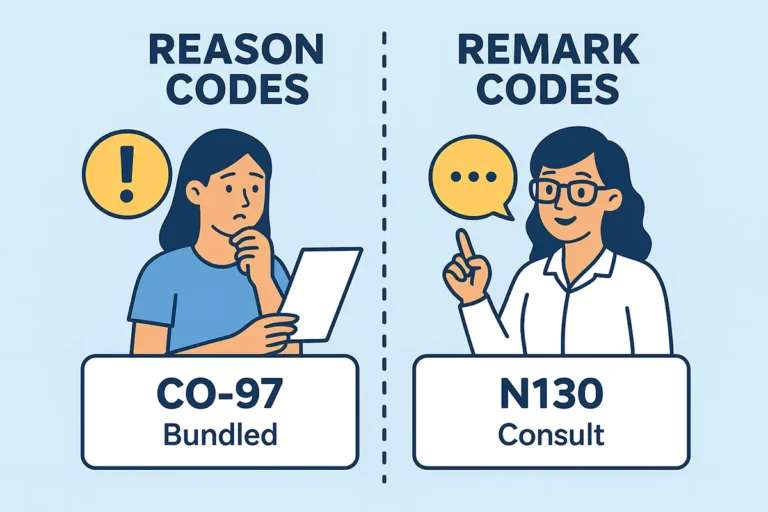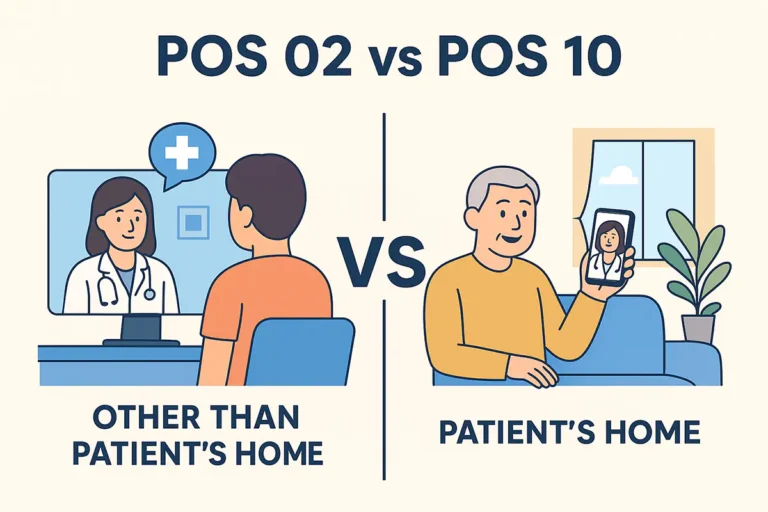Introduction
The National Provider Identifier (NPI) is a unique 10-digit number assigned to healthcare providers and organizations in the United States. This identifier is essential for medical billing, as it accurately identifies the provider or organization submitting claims to insurance companies.
NPIs simplify the billing process and ensure accuracy. Established under the Health Insurance Portability and Accountability Act (HIPAA) in 1996, NPIs became the exclusive method for identifying healthcare providers in claims submitted to American health insurers starting in 2007.
NPIs are not limited to doctors—they apply to a broad range of healthcare professionals and organizations. By standardizing provider identification, NPIs help streamline communication between providers and insurers, making the billing process more efficient for all parties involved.
Historical Context of NPI
Before the National Provider Identifier (NPI) was introduced, healthcare providers relied on a variety of identification numbers, such as the Unique Physician Identification Number (UPIN) for Medicare services.
The NPI was established under the Health Insurance Portability and Accountability Act (HIPAA) of 1996, a law passed by Congress to enhance healthcare efficiency and safeguard patient information.
In 2004, the Centers for Medicare and Medicaid Services (CMS) issued the final rule adopting the NPI, with an effective date of May 23, 2005. The system was implemented gradually, requiring most healthcare entities to comply by May 23, 2007, while small health plans were granted an additional year, until 2008.
The NPI replaced older identifiers and became the standard for Medicare services, with commercial insurers and other payers following suit. Since its rollout, the NPI has proven to be a valuable tool, saving millions in healthcare costs. It offers a universal method for identifying healthcare providers, streamlining billing processes, and improving communication across the industry.
Today, the NPI remains an essential component of medical billing and healthcare administration, simplifying workflows and enhancing efficiency throughout the healthcare system.
Types of NPIs
There are two types of NPIs that healthcare providers may encounter:
- Type 1 NPI: This identifier is assigned to individual healthcare professionals, including physicians, nurse practitioners, and therapists. Each provider receives a unique Type 1 NPI specific to them.
- Type 2 NPI: This identifier is designated for healthcare organizations such as hospitals, clinics, group practices, and other entities that deliver healthcare services. Type 2 NPIs are used to identify the organization as a whole, rather than individual practitioners.
How NPI Works
The process of obtaining and using an NPI involves several key steps:
- Applying for an NPI: Healthcare providers must submit an application through the National Plan and Provider Enumeration System (NPPES). This can be done online or via paper forms.
- Submitting Required Information: Applicants need to provide key details, including their name, practice location, specialty, and taxonomy code (which specifies their field of practice).
- Receiving the NPI: Once the application is processed, providers are issued a unique 10-digit NPI. This number remains the same throughout their career, even if they move to a new location or change practices.
- Using the NPI: Healthcare providers must include their NPI on all claims submitted to insurance companies and Medicare, whether electronically or on paper.
- Updating Provider Information: Any changes to a provider’s details—such as an updated address or specialty—must be promptly updated in the NPPES database to maintain accurate and up-to-date records.
Importance of NPI in Medical Billing
NPI plays a vital role in the medical billing process for several reasons:
- Standardized Provider Identification: The NPI offers a uniform system for identifying healthcare providers across different platforms and transactions, reducing confusion and minimizing errors related to provider identification.
- Accurate Claims Processing: Healthcare providers are required to include their NPI when submitting claims to insurance companies or Medicare. This ensures claims are processed correctly and reimbursements are directed to the appropriate provider.
- Regulatory Compliance: The use of NPIs is a requirement under HIPAA regulations. Healthcare organizations must adhere to these standards to maintain proper billing practices and avoid potential penalties.
- Enhancing Electronic Transactions: NPIs play a critical role in supporting electronic health records (EHR) and other digital transactions by serving as a unique identifier for each provider, promoting better interoperability among healthcare systems.
- Improving Patient Safety: By using NPIs, healthcare organizations can reduce the risk of errors or misidentification of providers, ultimately enhancing patient safety and the overall quality of care.
Conclusion
The National Provider Identifier (NPI) serves as a crucial element in the healthcare system, streamlining billing processes, ensuring accurate claims processing, and maintaining regulatory compliance. By providing a standardized method for identifying healthcare providers, NPIs contribute to a more efficient and secure medical billing system, ultimately improving patient care and administrative workflows.





